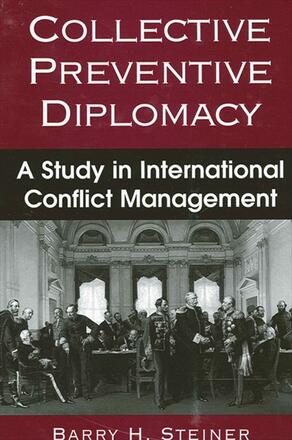
Collective Preventive Diplomacy
A Study in International Conflict Management
Alternative formats available from:
Examines how and why great powers act to defuse ethnic conflict within small powers.
Description
Powerful nations have often assumed a leadership role in international relations by becoming involved in ethnic conflict arising within small states. Recently however, their willingness to do so, at least unilaterally, has diminished. This study focuses on why and how powerful nations have acted together to dampen or forestall the expansion of small state conflicts while limiting potential risks to themselves. Employing a case-study method, Barry H. Steiner distinguishes between two types of collective preventive diplomacy, the insulationist and the interventionist. In the former, powerful nations are motivated to contain small power conflict in order to preserve their relations with other powerful nations. In the latter, they act to settle conflict between the small power antagonists themselves.
Barry H. Steiner is Professor of Political Science at California State University at Long Beach. He is the author of Bernard Brodie and the Foundations of American Nuclear Strategy.
Reviews
"…an important book that breaks new ground in analyzing the dynamics among the great powers that determine the prospects and patterns of collective action to defuse ethnic conflict in smaller states. " — Perspectives on Politics
"Fascinating to read, enormously thorough, detailed, and authoritative in a huge range of topics. Steiner has taken a complicated subject and, in several case studies that span two centuries, carefully arrived at conclusions that can be a guide to current and future action and understanding. " — I. William Zartman, coeditor of Peacemaking in International Conflict: Methods and Techniques
"A fine study, which fills an important gap in the literature of the past decade on preventive diplomacy and related problems. " — Alexander L. George, coauthor of Presidential Personality and Performance